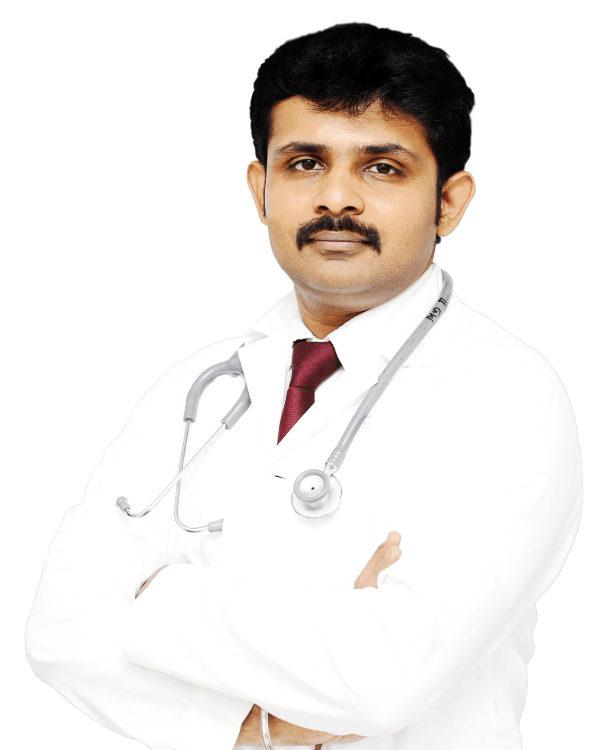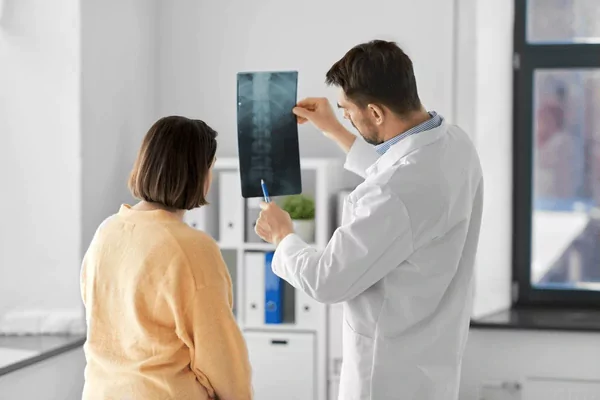Genetic Factors and Spine Conditions: Unraveling the Connection
When it comes to spine health, there’s more to it than just posture and lifestyle choices. Genetics, an intricate tapestry of inherited traits, also plays a significant role. Understanding the connection between genetic factors and spine conditions is essential for both patients and healthcare professionals.
Dr. Vignesh Pushparaj, recognized as the best spine specialist in Chennai, sheds light on this complex interplay.

What is a genetic disease of the spine? Can spine problems be genetic?
Our genetic makeup can influence our susceptibility to various health conditions, including those affecting the spine. Genetic factors encompass a wide range of variations that can predispose individuals to spine problems.
These factors may affect the structure of the spine, the strength of supporting tissues, or the body’s ability to repair spinal damage.
Common Spine Conditions with Genetic Links
Genetic factors contribute to several spine conditions, each with its unique genetic components:
Scoliosis:
Scoliosis is a condition characterized by an abnormal curvature of the spine. While the precise cause of scoliosis remains complex, there’s a genetic link. Family history often plays a role, with scoliosis running in families.
Degenerative Disc Disease:
Degenerative disc disease involves the gradual deterioration of spinal discs. Genetic factors can influence the early onset and progression of this condition.
Herniated Discs:
The vulnerability of spinal discs to herniation can also have genetic roots. Genetic variations may affect the strength and integrity of the discs.
Genetic Testing for Spine Conditions
Genetic testing has emerged as a valuable tool in diagnosing and assessing spine conditions. It allows healthcare providers to identify specific genetic variations that may increase an individual’s risk of developing certain spine problems.
While genetic testing can provide essential insights, it’s just one piece of the puzzle in understanding spine health.

The Importance of Family History
When it comes to genetics and spine conditions, your family history is a valuable resource. A family history of spine problems can serve as a crucial indicator of genetic predisposition.
If you have close relatives with spine conditions, such as scoliosis, it’s essential to share this information with your healthcare provider.
Lifestyle and Environmental Factors
While genetics play a significant role, lifestyle and environmental factors also contribute to spine health. Making healthy choices, such as maintaining a balanced diet, staying physically active, and practicing proper posture, can mitigate the effects of genetic predisposition.
Advances in Personalized Treatment
Genetic insights are revolutionizing spine condition management. As we understand more about the genetic factors at play, treatment plans can become increasingly personalized.
Tailored interventions based on an individual’s genetic profile hold the promise of more effective and precise treatments.
The Future of Genetic Research in Spine Health
The field of genetic research in spine health is continually evolving. Ongoing research efforts, including those led by experts like Dr. Vignesh Pushparaj, are pushing the boundaries of our understanding.
These efforts pave the way for potential breakthroughs in spine condition management.
In conclusion:
The connection between genetic factors and spine conditions is a complex yet vital aspect of spine health. While genetics can influence your risk, proactive lifestyle choices and regular check-ins with specialists like Dr. Vignesh Pushparaj, a scoliosis surgery doctor in Chennai, can help you navigate and manage your spine health effectively.
By staying informed and embracing personalized approaches, you can maintain a healthy spine for years to come.






0 Comments